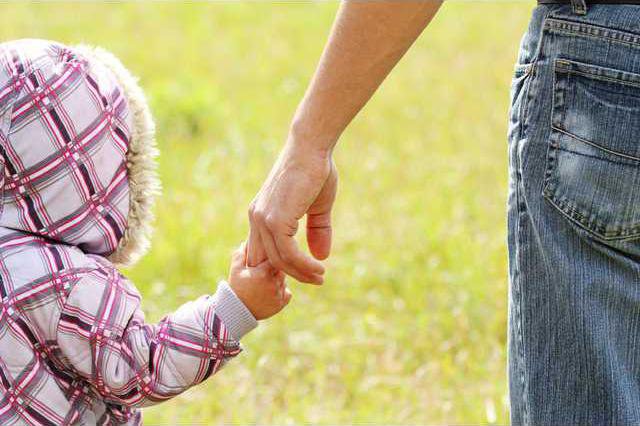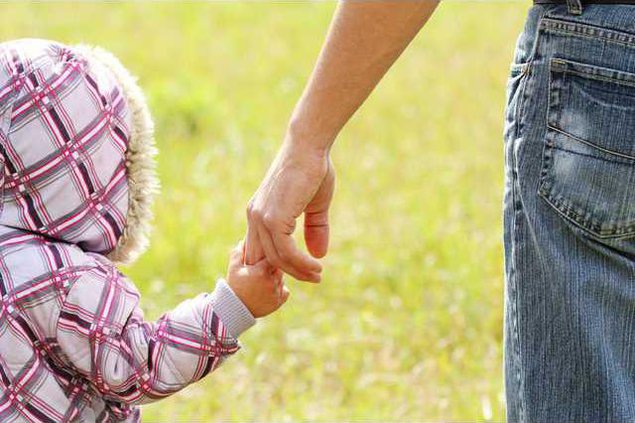From PTA meetings to soccer games and homework, having children completely changes your life. While you might want to pull out your hair most days, there are some health benefits to having children that most parents don't know.
Here are five ways that having and spending time with children benefits your health:
Improves mental health
Sometimes it might feel like your kids are driving you crazy, but they could actually be improving your mental health. A group of researchers at Taiwan's Mental Health Foundation conducted a study using 2,930 seniors. The research looked at the mental health of older adults, some with children and others without. The study showed that those without children had a significantly lower score on the questionnaire tests.
Another study from the Womens Health Aging Project in Australia looked at the effects children have on grandparents. The study followed 186 different women, 120 of whom were grandmothers. The study showed that the women that spent time with their grandkids once a week had improved mental health and less risk of being diagnosed with Alzheimers disease, versus those that did not spend time with children.
Improves happiness
Children can bring some of the greatest joy that you can't get anywhere else. Parents have always expressed that their kids are their biggest source of happiness, and now there are studies to back that up.
The Max Planck Institute for Demographic Research conducted a study using 200,000 parents in 86 countries across the globe. The research was done over an extended period, spanning from 1981 to 2005. The study looked at the happiness of parents over time and showed some exciting news for parents. Those age 40 years old or older with one to three children were happier than those without children.
For anyone over the age of 50, parents were happier than any couple without children. The author of the study, Mikko Myrskyla called children a "long-term investment in happiness," stating that as children grow older, the parents' happiness also becomes greater. The increase of happiness wasn't dependent on sex, income or partnership status.
Lowers your blood pressure
While it might seem like kids make your blood pressure skyrocket, a research study by Brigham Young University has revealed the opposite: that children may actually lower your blood pressure. The study looked at the blood pressure of 200 married couples, both men and women -- some with and some without children. The data showed that the couples with kids had significantly lower blood pressure than those without children.
And lower blood pressure means lower medical bills and less expensive life insurance.
Helps you drop bad habits
After having children, many parents feel a deeper need to take care of themselves. Having a kid makes many people realize that a child is relying on them, which motivates them to drop bad, harmful habits -- anything from smoking to eating poorly to not exercising.
Many parents say that they quit smoking after their child was born because of the harmful effects it could have on the baby and themselves. And many parents start driving slower to prevent accidents, or watching more carefully how they spend money (the desire to save money for college may have something to do with that).
Increases your life span
Having children could make you live longer than those who don't. There have been many studies completed that analyze the connection between life spans and having kids, some of which say that having children results in a longer life.
A recent study from Aarhus University in Denmark looked at 21,276 couples that did not have children but were going through fertility treatments between 1994 and 2005.
The data, which was released in the Journal of Epidemiology and Community Health, suggests that men that wanted children, but couldn't have them, had a death rate that was doubled. For women, the death rate was four times higher than women with children. The study emphasizes, however, the fact that couples that do not have children voluntarily may not see the increase of premature death, unlike couples that want to have children but physically cannot. The researchers also explained that adopting children could reduce the chances of early death, but not as much as having a biological child.
Parents say that having children completely changes their lives. Children bring joy and a new meaning to life that most couples did not think possible before. But aside from the newfound joy, those children can improve your mental and physical health like nothing else.
Here are five ways that having and spending time with children benefits your health:
Improves mental health
Sometimes it might feel like your kids are driving you crazy, but they could actually be improving your mental health. A group of researchers at Taiwan's Mental Health Foundation conducted a study using 2,930 seniors. The research looked at the mental health of older adults, some with children and others without. The study showed that those without children had a significantly lower score on the questionnaire tests.
Another study from the Womens Health Aging Project in Australia looked at the effects children have on grandparents. The study followed 186 different women, 120 of whom were grandmothers. The study showed that the women that spent time with their grandkids once a week had improved mental health and less risk of being diagnosed with Alzheimers disease, versus those that did not spend time with children.
Improves happiness
Children can bring some of the greatest joy that you can't get anywhere else. Parents have always expressed that their kids are their biggest source of happiness, and now there are studies to back that up.
The Max Planck Institute for Demographic Research conducted a study using 200,000 parents in 86 countries across the globe. The research was done over an extended period, spanning from 1981 to 2005. The study looked at the happiness of parents over time and showed some exciting news for parents. Those age 40 years old or older with one to three children were happier than those without children.
For anyone over the age of 50, parents were happier than any couple without children. The author of the study, Mikko Myrskyla called children a "long-term investment in happiness," stating that as children grow older, the parents' happiness also becomes greater. The increase of happiness wasn't dependent on sex, income or partnership status.
Lowers your blood pressure
While it might seem like kids make your blood pressure skyrocket, a research study by Brigham Young University has revealed the opposite: that children may actually lower your blood pressure. The study looked at the blood pressure of 200 married couples, both men and women -- some with and some without children. The data showed that the couples with kids had significantly lower blood pressure than those without children.
And lower blood pressure means lower medical bills and less expensive life insurance.
Helps you drop bad habits
After having children, many parents feel a deeper need to take care of themselves. Having a kid makes many people realize that a child is relying on them, which motivates them to drop bad, harmful habits -- anything from smoking to eating poorly to not exercising.
Many parents say that they quit smoking after their child was born because of the harmful effects it could have on the baby and themselves. And many parents start driving slower to prevent accidents, or watching more carefully how they spend money (the desire to save money for college may have something to do with that).
Increases your life span
Having children could make you live longer than those who don't. There have been many studies completed that analyze the connection between life spans and having kids, some of which say that having children results in a longer life.
A recent study from Aarhus University in Denmark looked at 21,276 couples that did not have children but were going through fertility treatments between 1994 and 2005.
The data, which was released in the Journal of Epidemiology and Community Health, suggests that men that wanted children, but couldn't have them, had a death rate that was doubled. For women, the death rate was four times higher than women with children. The study emphasizes, however, the fact that couples that do not have children voluntarily may not see the increase of premature death, unlike couples that want to have children but physically cannot. The researchers also explained that adopting children could reduce the chances of early death, but not as much as having a biological child.
Parents say that having children completely changes their lives. Children bring joy and a new meaning to life that most couples did not think possible before. But aside from the newfound joy, those children can improve your mental and physical health like nothing else.





